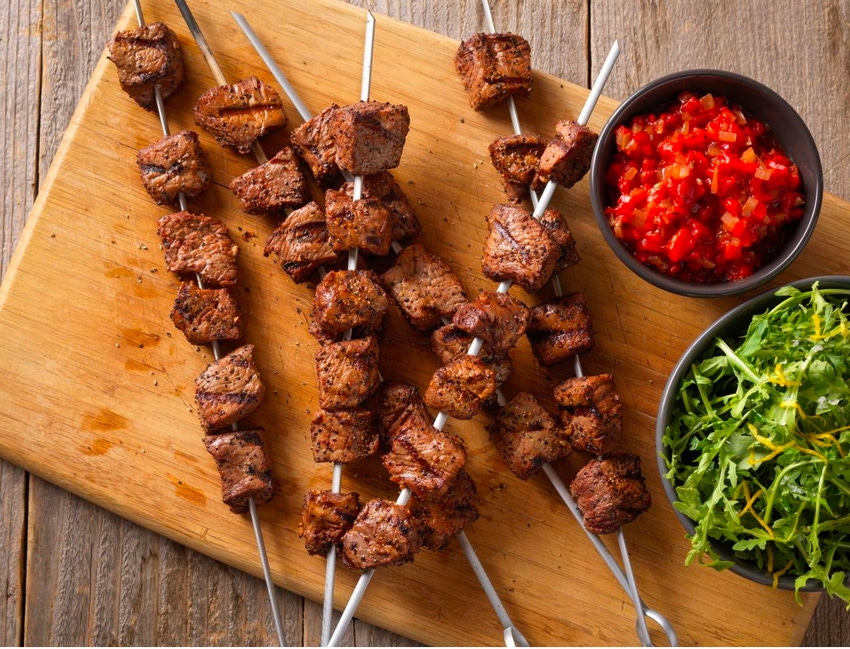Nutrition the best medicine to safeguard from pandemics
Nina Teicholz addresses the elephant in the room during the COVID-19 crisis — good nutrition boosts immune systems and wards off chronic illnesses.
June 1, 2020

For months, we’ve been asked to stay in our homes, reduce contact with others, avoid touching our faces, wipe down surfaces, wear masks (or don’t wear masks?), shutter businesses, close down schools and more, all in response to the global COVID-19 pandemic.
Now, as our country seeks lift some of these restrictions and look ahead to what the “new normal” might be, I have found myself wondering why has diet and nutrition not come into the conversation about how we can protect ourselves from illness?
Now it has, thanks to Nina Teicholz. She has never been afraid to take on the medical and nutritional community and challenge the well-indoctrinated notion that plant-based diets are king and animal fats and proteins are bad.
As the executive director of the Nutrition Coalition, Teicholz recently published an op-ed in The Wall Street Journal titled, “A low-carb strategy for fighting the pandemic’s toll.”
This article is the antidote to the activist op-eds which cite meat-eating and animal agriculture as the causes for pandemics like this one. I believe it should be shared far and wide to help educate consumers about the benefits of meat-centered diets.
Teicholz writes, “The coronavirus has added a brutal exclamation point to America’s pervasive ill health. Americans with obesity, diabetes, heart disease and other diet-related diseases are about three times more likely to suffer worsened outcomes from Covid-19, including death.
“Had we flattened the still-rising curves of these conditions, it’s quite possible that our fight against the virus would today look very different. To combat this and future pandemics, we need to talk about not only the masks that go over our mouths, but the food that goes into them.”
Teicholz criticizes the Dietary Guidelines for Americans, saying, “Next month, an expert committee will issue its advisory report on the federal government’s official dietary guidelines for the next five years. First published in 1980, the guidelines are meant to encourage healthy eating, but they have self-evidently failed to stem the ever-rising rates of obesity, diabetes and other chronic diseases in the U.S.”
Her suggestion to addressing our nation’s expanding waistline — eat more meat, dairy and eggs.
She says, “Pills and surgery can treat the symptoms of such conditions, but diet-related problems require diet-related solutions. The good news is that changes in diet can start to reverse these conditions in a matter of weeks.
“In one controlled trial at the University of Indiana involving 262 adults with Type 2 diabetes, 56% were able to reverse their diagnosis by following a very low-carbohydrate diet, with support from a mobile app, in just 10 weeks. The results of this continuing study have been sustained for two years, with more than half the study population remaining free of a diabetes diagnosis.”
Yet, despite the growing evidence to support animal proteins in the diet, Teicholz says the federal government’s dietary guidelines stand in the way of making low carb diets a viable option for the 60% of Americans with at least one chronic disease.
She explains, “That’s because the guidelines call for a diet high in grains, with more than 50% of calories coming from carbohydrates. The guidelines aren’t mere advice: They drive the National School Lunch Program, feeding programs for the elderly and the poor, and military food. Many patients learn about the guidelines from their doctors and dietitians.”
To read Teicholz’s entire commentary, click here.
This issue isn’t new, and although it might pale in comparison when looking at some larger, much more divisive issues facing our nation right now, I am certain a well-fed and well-nourished America is a more peaceful, content and healthier America.
And to achieve that, it starts with nutrient-dense beef.
The opinions of Amanda Radke are not necessarily those of beefmagazine.com or Farm Progress.
About the Author(s)
You May Also Like




.png?width=300&auto=webp&quality=80&disable=upscale)
